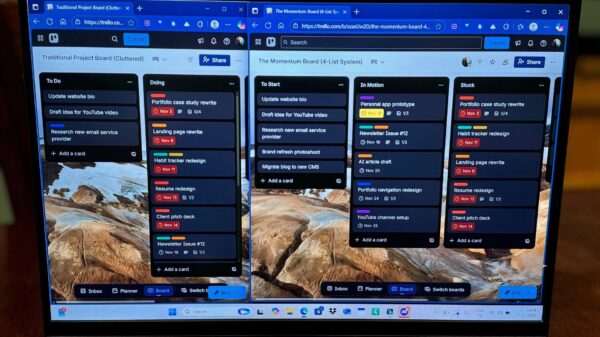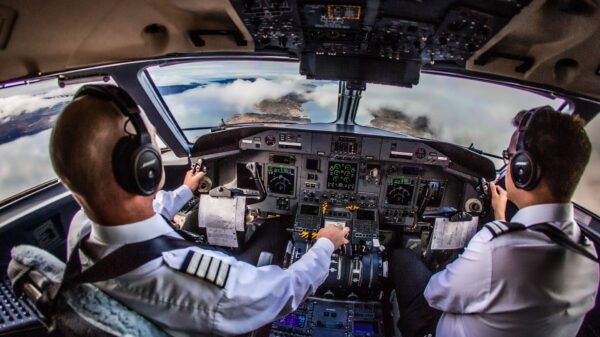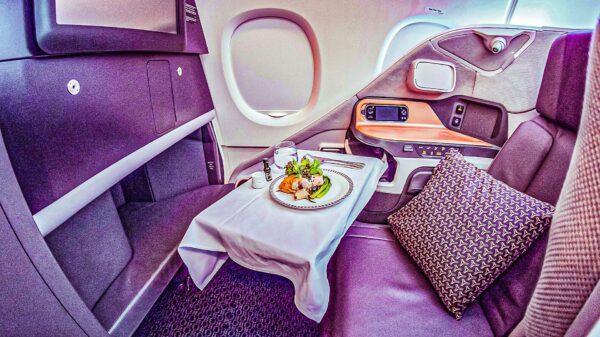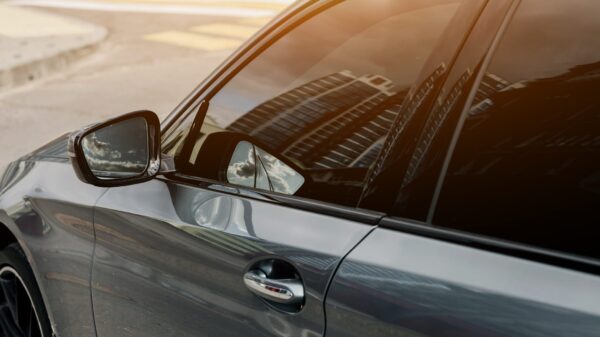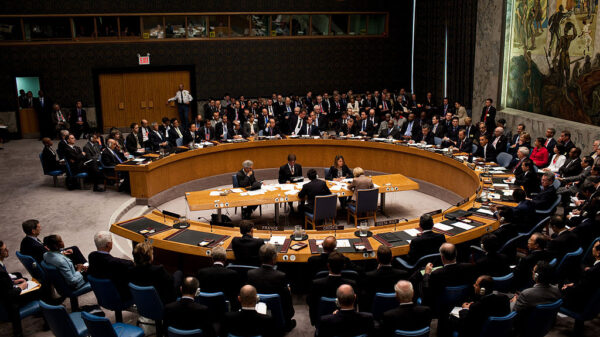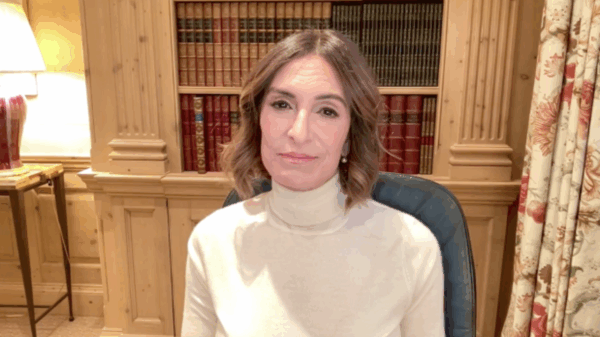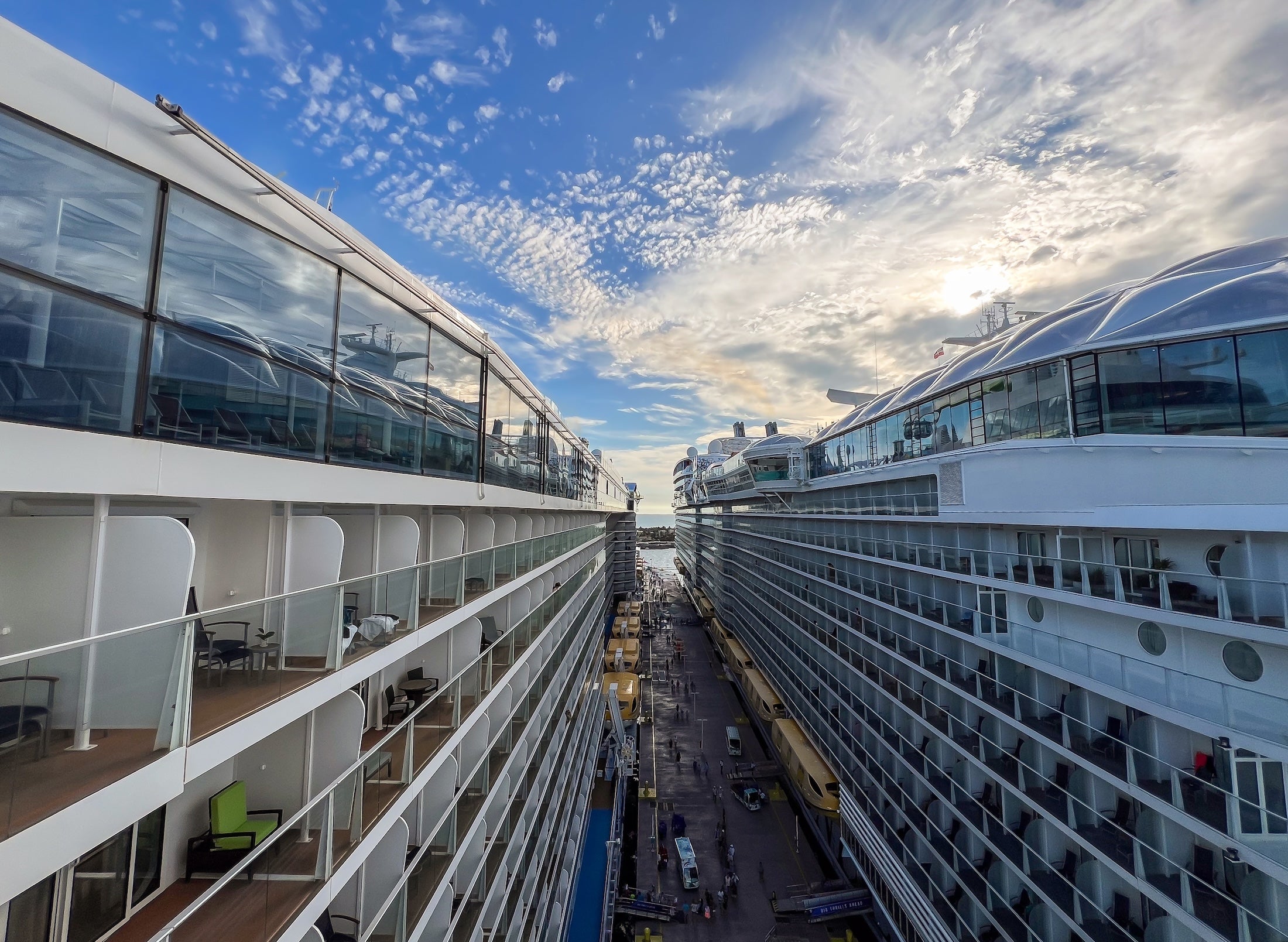UPDATE: A viral TikTok video showing a couple sleeping on a cruise ship balcony has ignited a heated debate about privacy in public spaces. The video, which has amassed millions of views, raises critical questions about filming strangers without consent. As discussions unfold, many are demanding a re-evaluation of travel etiquette and privacy norms.
On September 20, 2025, TikTok user Mandy (@mandythrcruiseplanner) shared her perspective on the controversial footage, revealing that the individuals filming were aboard a neighboring cruise ship. While some viewers found humor in the scene, Mandy expressed concern over the ethics of broadcasting strangers’ private moments to an online audience.
“It does seem a little odd to me that we’re this comfortable with filming complete and total strangers,” Mandy stated. “When you go so far as to film somebody else and then put them out there for millions of people to see, a part of me wonders if this is just going too far.”
As the video gained traction, several commenters reflected on the potential humiliation faced by the unsuspecting couple, highlighting that many had harshly critiqued their age and appearance. The discourse around privacy and respect has intensified, with users questioning whether cruise ship balconies should be considered private spaces.
This isn’t the first time such a situation has raised eyebrows. Earlier this year, TikTok user @cartelmarcel sparked similar discussions when he defended the right to relax on cruise balconies, saying, “If I’m paying $2,000, $3,000 for a cruise, I’m putting my bed wherever I want.”
Many TikTok users joined the conversation, agreeing that the ease of filming others in public has gone too far. One user remarked, “Filming in public has gotten out of hand. Yes, you are allowed to, technically, but it’s so awful that it’s normalized, especially here on TikTok.” Others echoed sentiments about the erosion of privacy, emphasizing that “not everything should be content.”
The debate also covers whether cruise balconies are inherently private. Some commentators argue that they are extensions of personal space, while others assert that filming is permissible. One user noted, “There is NO expectation of privacy on a balcony. However, common courtesy would be to look away or ignore, not photograph or record.”
As this story continues to develop, social media users are urged to consider the implications of their actions and the impact on others. The viral video serves as a flashpoint for broader conversations about consent, privacy, and the evolving norms of public behavior in the digital age.
What remains to be seen is whether this incident will lead to changes in how people approach filming others during leisure activities, especially in settings where privacy is often taken for granted. As this discussion unfolds, stay tuned for further updates on this pressing issue.


